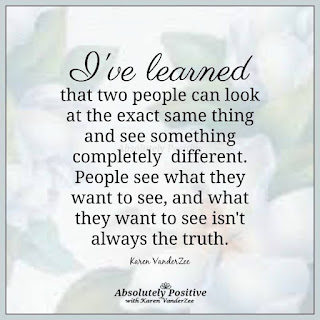Give Up the Blame Game
“Blame
aggressively shifts shame onto someone else… Making someone else the problem
allows us to feel better about ourselves, while having the effect of making the
other person feel the way we really
feel inside.”
Darlene
Lancer, Conquering Shame and Codependency
Addicts
love to play the blame game. Most of us are pretty poor at taking
responsibility for our own mistakes and dysfunctional behaviors. This resistance
is rooted in our poor self-esteem, which makes it nearly impossible for many of
us to admit that we were wrong in any way.
As
a result, it’s often subconsciously important for us to make someone else
responsible for our mistakes, as well as for the guilt and shame we feel about
having made those mistakes.
It’s
rare for a codependent to be able to honestly laugh-off his/her mistakes. We
don’t know how to laugh at ourselves and we are too paranoid that people will
reject us for making mistakes. Our refusal to acknowledge and take
responsibility for mistakes forces us to do the opposite: Enter into denial and
find a scapegoat to blame.
In
the height of my codependency, I was terrified if taking responsibility for a
mistake. It was as if admitting to a mistake would negate my value in life
completely. If I was faced with a big mistake, I’d replay the entire situation
over and over again in my mind; looking for a way to rationalize that it was
really someone else’s fault and not mine. The shame I felt was so great that I
really believed that owning the mistake would annihilate my right to exist.
Through
recovery, I’ve learned to laugh at my mistakes and even poke fun at the fact
that I am perfectly imperfect. I’ve also discovered that it actually feel
pretty good to take ownership for a mistake. I have an immediate sense of
relief knowing that I have taken responsibility. It proves to me that I am a
valuable, responsible person who has enough integrity to do the right thing.
No
one respects a person who is constantly shifting blame for his/her errors off
onto someone else. Again we can rationalize our way into believing we have
fooled people with our lies and denial, but that’s rarely the case. Most people
see through our smokescreen, and their respect for us goes down the drain. So
it’s actually ironic that the more we try to protect ourselves from looking bad
by blaming others, the more we actually do look bad in the eyes of others.
The
blame game is destined to blow-up in our faces. So it makes more sense to drop
our denial, to learn to love ourselves better and to begin to take
responsibility for all of our words and actions. If we feel shame over making a
mistake, that’s OK. We need to face the shame and then remind us that there’s
no mistake big enough to negate our value as human beings. As we take our power
back from the shame, we will be better able to own our errors, be responsible
for them and thus be right with ourselves and others. And we can always call
upon our Higher Power to help us.




Comments
Post a Comment